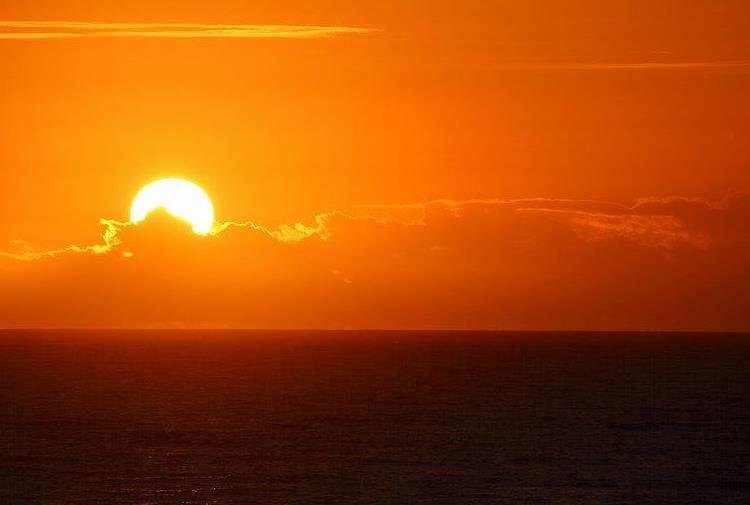The Egyptian Meteorological Authority (EMA) has forecasted hot and humid weather across Egypt on Tuesday, with temperatures in Cairo expected to reach 32°C. The weather will be particularly intense in the southern regions, where temperatures could soar to 45°C. The EMA has advised residents to take precautions, such as staying hydrated and avoiding direct sunlight during peak hours. This article provides an overview of the expected weather conditions, the impact on daily life, and tips for coping with the heat.
The EMA predicts that most parts of Egypt will experience hot and humid weather during the day. In Greater Cairo, temperatures will reach 32°C, while Alexandria will see highs of 33°C. The northern coasts will also experience hot weather, with temperatures around 31°C in Marsa Matruh. The southern regions, including Sohag, Qena, and Aswan, will face extreme heat, with temperatures ranging from 42°C to 45°C.

The humidity levels are expected to rise, making the weather feel even hotter. This increase in humidity will be felt throughout the day, particularly in coastal areas and the Nile Delta. The EMA has warned that the combination of high temperatures and humidity can lead to heat-related illnesses, urging people to take necessary precautions. The weather at night will remain hot and humid, providing little relief from the daytime heat.
In addition to the heat, the EMA has forecasted occasional wind activity across the country. These winds may stir up sand and dust, particularly in South Upper Egypt and the Red Sea Mountain Trail. There is also a chance of light to medium rainfall, sometimes accompanied by thunderstorms, in these regions. The Mediterranean Sea will experience low to moderate waves, while the Red Sea will see moderate wave activity.
Impact on Daily Life
The hot and humid weather is expected to have a significant impact on daily life in Egypt. Residents are advised to stay indoors during the hottest parts of the day and to avoid strenuous activities. The EMA has recommended wearing light, loose-fitting clothing and drinking plenty of water to stay hydrated. It is also important to avoid direct sunlight and to use sunscreen to protect against harmful UV rays.
The extreme heat can pose health risks, particularly for vulnerable populations such as the elderly, children, and those with pre-existing health conditions. Heat-related illnesses, such as heat exhaustion and heatstroke, can occur if proper precautions are not taken. Symptoms of heat exhaustion include heavy sweating, weakness, dizziness, and nausea. If left untreated, heat exhaustion can progress to heatstroke, a life-threatening condition characterized by a high body temperature, confusion, and loss of consciousness.
The weather conditions may also affect transportation and infrastructure. The heat can cause roads to buckle and can lead to power outages due to increased demand for air conditioning. Public transportation services may be disrupted, and delays are expected. Residents are advised to plan their travel accordingly and to stay informed about any updates from local authorities.
Tips for Coping with the Heat
To cope with the hot and humid weather, the EMA has provided several tips for residents. Staying hydrated is crucial, so it is recommended to drink plenty of water throughout the day. Avoiding caffeinated and alcoholic beverages, which can lead to dehydration, is also advised. Eating light, balanced meals and incorporating fruits and vegetables with high water content can help maintain hydration levels.
Wearing light-colored, loose-fitting clothing made of breathable fabrics, such as cotton, can help keep the body cool. Using fans or air conditioning to maintain a comfortable indoor temperature is also important. If air conditioning is not available, taking cool showers or baths can provide relief from the heat. It is also beneficial to keep windows open to allow for ventilation and to use shades or curtains to block out direct sunlight.
Residents should avoid outdoor activities during the hottest parts of the day, typically between 10 a.m. and 4 p.m. If outdoor activities are necessary, it is important to take frequent breaks in the shade and to wear a wide-brimmed hat and sunglasses for protection. Applying sunscreen with a high SPF can help prevent sunburn and reduce the risk of skin damage.
By following these tips and staying informed about the weather conditions, residents can protect themselves and their families from the adverse effects of the hot and humid weather. The EMA will continue to monitor the situation and provide updates as needed.
